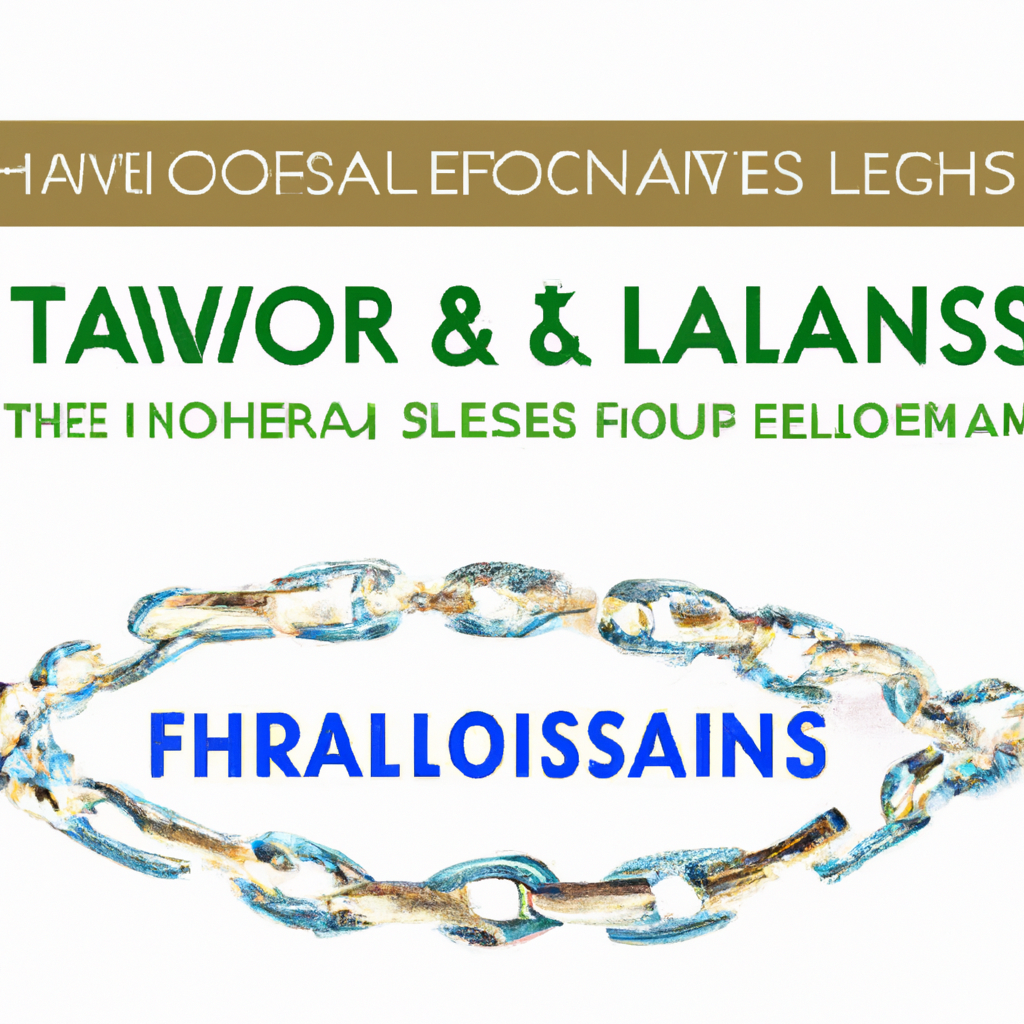In an ever-evolving world, fashion is forever creating new trends. But when it comes to the ethical production and distribution of fashion items, is the industry really keeping up with the pace? From the exploitation of production workers to the sustainability of the fabrics used, fashion law and ethics have become increasingly essential topics. With challenges and transformations emerging all the time, it is essential to understand the current issues surrounding fashion law and ethics and how these can be effectively managed and addressed.
1. The Intersection of Style and Responsibility: Examining the Evolving Landscape of Fashion Law and Ethics
As people’s interest in personal style continues to grow, so does the inevitable rise of legal and ethical issues related to the fashion industry. Consumers are increasingly demanding greater awareness and more transparency from their favorite clothing brands. Whether we’re talking about animal rights, garment workers’ rights, or sustainability, fashion law and ethics have become more relevant than ever. It’s a great time to take an in-depth look into this increasingly important intersection.
In the past, discussing fashion law and ethics was often viewed as optional or even irrelevant. Companies rarely discussed their labor practices openly or allowed their customers to investigate these topics. Now, many companies see the value of incorporating corporate responsibility into their core values. They recognize it’s not only ethical to operate with transparency and fairness, but that it’s a winning marketing strategy.
The world of fashion is changing faster than ever. Brands across the industry are becoming more aware of the importance of ethical and sustainable production. They’re taking into consideration fair labor practices, supportive work environments, and sustainable fabrics. This shift is exciting and inspiring but can also be daunting – new legal and ethical issues arise all the time. Consulting a qualified lawyer or advisor is the best way to ensure you’re making the best possible decisions.
At the same time, there is a surge in consumer awareness of the ethical issues related to the fashion industry. In response, many brands are facing pressure to answer for their practices. The growing desire for consumer transparency is driving new initiatives that promote ethical production.
This combination of consumer demand and corporate responsibility has led to an incredible transformation in the fashion industry. Here are just a few ways you can get involved and make a difference:
- Actively seek out companies that prioritize ethical practices.
- Report any unethical behavior you may witness.
- Educate yourself about labor laws and how they apply to fashion.
- Write letters or join protests on behalf of garment workers.
At the end of the day, fashion law and ethics are complex and ever-evolving topics. Assessing the risk and making well-informed decisions is the key to staying ahead of the curve. Pay attention to the latest trends in fashion law and ethics – you may discover something new!
2. Fashion Forward or Morally Backward? Unveiling the Challenges Faced by the Fashion Industry in Achieving Ethical Transformation
The fashion industry is no stranger to the long-running debates on ethical stands. With the ever-changing societal norms, designers, manufacturers, and fashion retailers need to always be on the lookout for the latest trends and technologies in order to stay on top of the fashion game. But with these movements also come ethical concerns, and the industry is constantly being asked if fashion is truly “forward” or “backward” in terms of morality.
Responsible Manufacturing
The biggest challenge facing the fashion industry is responsible manufacturing. Corporate social responsibility (CSR) is a major element driving ethical transformation in the industry, and fashion companies are aware that consumers and stakeholders now gravitate towards brands which support sustainability and ethical practices.
The fashion industry often produces goods in bulk to meet the demands of consumers, but this mindset also comes with grave consequences – fast fashion items tend to be of low quality due to their limited production time. This can lead to dangerous working environments, cheap materials, and unethical treatments of employees, all of which should be addressed in order to create sustainable fashion practices.
Moral Accountability
- Ensuring practices are transparent and accountable to ensure all regulations are followed.
- Creating better working conditions with fair wages, healthier working environments, and improved safety protocols.
- Using quality materials and fabrics from sources with fair trade regulations and standards.
- Reducing carbon emissions through sustainable production methods.
- Reducing water usage in manufacturing processes.
The fashion industry needs to take a step forward in terms of ethical practices, and this means moral accountability. Guidelines and regulatory structures need to be established to prevent any immoral behaviors, and companies need to be transparent when it comes to their production methods.
Ultimately, fashion is a reflection of our society, and it is our responsibility to ensure that what we wear is ethically made. The only way forward is to move away from fast fashion and create sustainable practices which will not only benefit our environment, but also the people involved in fashion.
3. Ethical Fashion: Breaking the Shackles of an Unregulated Industry
Global fashion industry has long been lasted in a state of almost complete lack of regulation, leaving emissions and working conditions unchecked. This means that no proper records of hazardous substances, waste produced and working conditions are kept, creating from all-over the world unethical and dangerous living and working conditions.
It is high time for us to start including altruistic principles in our everyday consumerism and actively promote ethical fashion. Adopting the concept of ethical fashion starts with the awareness of the efficiency and requirements of the fashion industry production chain, and its association with the environment and society.
Here are some of the most important reasons why ethical fashion should be taken seriously and why everyone should start investing in this idea:
- It is an eco-friendly approach and the preservation of nature goes first;
- It adheres to an efficient water and material management system as well as a monitored energy consumption;
- It promotes fair payment, working conditions and age requirements.
Ethical fashion also recognizes the significant importance of cultural context and community. The appreciation of local culture and the respect towards traditions of local fashion is encouraged. Consumers are made aware of fair trade and the value of global awareness when it comes to fashion production.
By buying brands that focus on ethical production, we support sustainability and show concern for the present and the future, while also urging the rest of the industry and government to push for regulations and limits on irresponsible exploitation of natural resources and labour.
4. From Runways to Regulations: Overcoming Legal Hurdles to Bridge the Gap between Fashion and Ethics
In today’s fashion industry, it is difficult to find a successful business that has been able to bridge the gap between fashion and ethics. There are a number of obstacles, both legal and philosophical, that need to be overcome in order to make fashion more ethically conscious. In this section, we will explore some of the legal hurdles and possible solutions for breaking down these barriers.
Regulations and Standards
- One of the primary legal stumbling blocks when it comes to fashion and ethics is the lack of regulations governing the industry. Although there are some voluntary standards that brands strive to adhere to, there is no overarching set of regulations or enforcement of those standards.
- In order to bridge the gap between fashion and ethics, it is necessary to introduce a set of binding regulations for the industry. These regulations could be enforced by a third-party governing body, or from within the fashion industry itself. The regulations should be designed to ensure that all businesses adhere to ethical practices in their design, production and marketing of garments.
Sampling and Copyright Protection
- Another significant issue in the fashion industry is sampling. This is when fashion designers create items based on the designs of other designers, which can lead to copyright issues. This can create a perception that the industry is unethical as it lacks creative integrity and often goes unpunished.
- A possible solution to this problem is to introduce a set of regulations which require that all designers properly credit the original designer when using their work. This should be done in a way that is prominent and easily visible, so that the designer’s work is not stolen without their permission.
Labor Actions
- The fashion industry has long been criticized for its use of unethical labor practices, ranging from child labor to inadequate pay and working conditions. This is a major obstacle when it comes to bridging the gap between fashion and ethics. In order for this to change, it is necessary to introduce a set of labor regulations that are enforced both in the fashion industry itself, and by government agencies.
- These regulations should ensure that all workers are paid fairly and provided with adequate working conditions. It should also provide stiff penalties for any companies who violate the regulations, in order to ensure that they are taken seriously.
The fashion industry has a long way to go in order to bridge the gap between fashion and ethics. However, by introducing a set of regulations and standards, as well as labor protections, the industry could start to move towards a more ethical approach. It is up to the industry to take action in order to ensure that fashion and ethics go hand in hand.
Fashion law and ethics can be difficult and confusing topics to tackle. However, by understanding their complexities and keeping up with the latest challenges and transformations, individuals and organizations can ensure their activities are ethical and legally compliant. The world of fashion is constantly evolving, and those who remain proactive about staying informed are likely to succeed.




